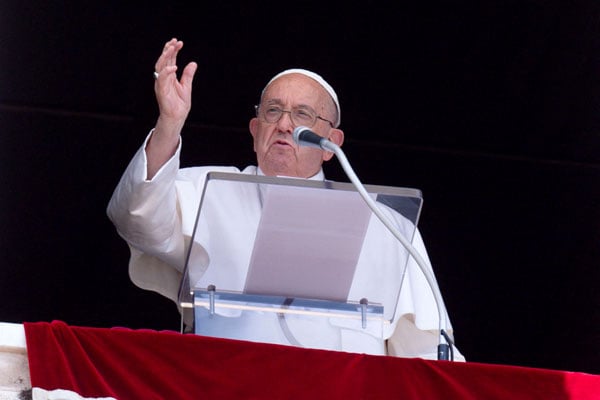Prime
The clergy cannot remain silent when their flock needs guidance

Lawrence Mudduse
What you need to know:
Playing right role. There is no way the voices of religious leaders should be left out in the marketplace of ideas. They have to come out to say unequivocally what they know is right. They should not be abused or told that they are arrogant. They might sound arrogant but that is what prophets have always been accused of from time immemorial.
It was heartwarming to listen to many priests and bishops denouncing so passionately the decision of the majority MPs, who voted to lift the presidential age limit. As expected, many politicians have excoriated them. The vitriolic attacks have been both on their statements and persons.
In the Catholic Church, when a seminarian is ordained to the Diaconate, he is given a book of prayers called the Breviary which he recites four to seven times a day till death. The Second reading in the Breviary for the 27th Sunday of the year, has St Gregory the Great directly speaking to a religious leader about being careful in his silence and useful in his utterances. Gregory says:
“A religious leader should be careful in deciding when to remain silent and be sure to say something useful when deciding to speak. In this way, he will avoid saying things that would be better not said or leaving unsaid things that ought to be said. For, just as thoughtless remarks can lead people into their error, so also ill-advised silence can leave people in their error, when they could have been shown where they were wrong.
“Negligent religious leaders are often afraid to speak freely and say what needs to be said - for fear of losing favour with people. As Truth (Christ) Himself says, they are certainly not guarding their flock with the care expected of a shepherd, but are acting like mercenaries, because hiding behind a wall of silence is like taking flight at the approach of the wolf.”
From the above, there is no way the voices of religious leaders should be left out in the marketplace of ideas. The clergy cannot remain silent when their flock needs guidance; whenever they see the truth and justice being compromised; whenever they see and experience the abuse of human rights.
They have to come out to say unequivocally what they know is right. They should not be abused or told that they are arrogant. They might sound arrogant but that is what prophets have always been accused of from time immemorial. You only need to open the Old Testament to find the veracity of my assertion. It is so painful to hear former guerillas abusing church leaders whereas when they were in the bush, they were strongly supported by the priests and bishops.
If [Emmanuel] Cardinal Nsubuga and Bishop Magambo (to mention only two) were still alive, anyone interested would have asked them for the evidence of my assertion.
The MPs who voted against the Bill must have remembered St Thomas More, the great English lawyer and politician, who refused to sacrifice his conscience in order to approve the divorce and remarriage of the king he served King Henry VIII. Those who voted in favour of the Bill, acted like Richard Rich, a young ambitious Cambridge graduate, who wanted a position in the king’s administration.
Thomas More told him that he could find him a job as a teacher in a local school. Crestfallen, Rich complained, “If I were a teacher, who would know it?” More told him: “You, your friends, your pupils, God…not a bad public.” Rich rejected More’s offer.
I now agree with Cardinal Wamala’s statement that he made in 2007 when the Catholic Univeristy of Eastern Africa in Nairobi awarded him a doctoral degree.
He said: “Those who come as liberators, time comes when the country needs a liberator to liberate them from the liberators.”
With what is happening in Uganda, isn’t this the time to get a liberator to liberate us from the liberators? What do you think?
Fr Lawrence Mudduse is a lecturer and
formator at St Paul’s National Seminary,
Kinyamasika in Fort Portal.
[email protected]




